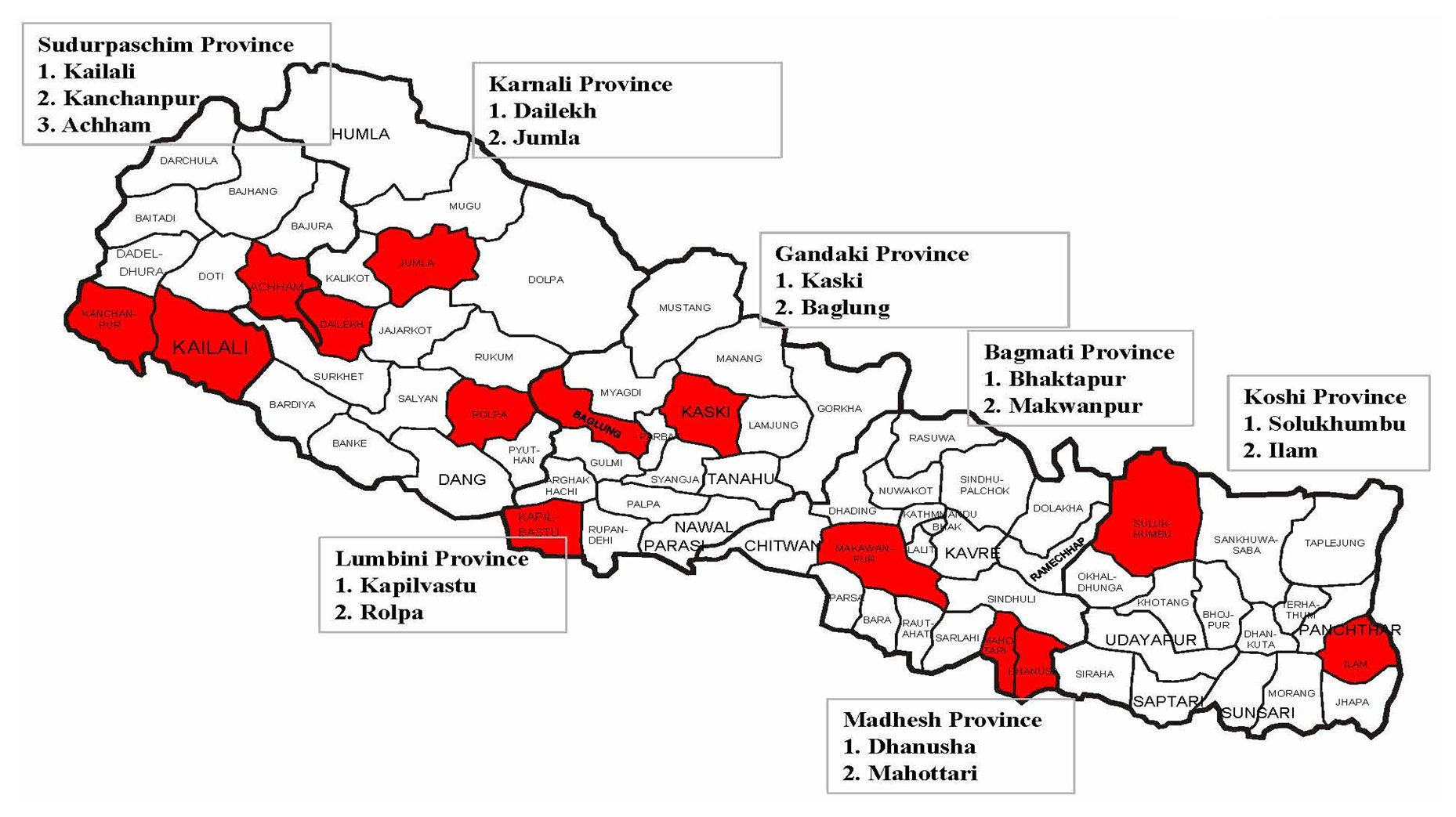Mensuration Education
Our Initiatives
Research project Dignity without Danger
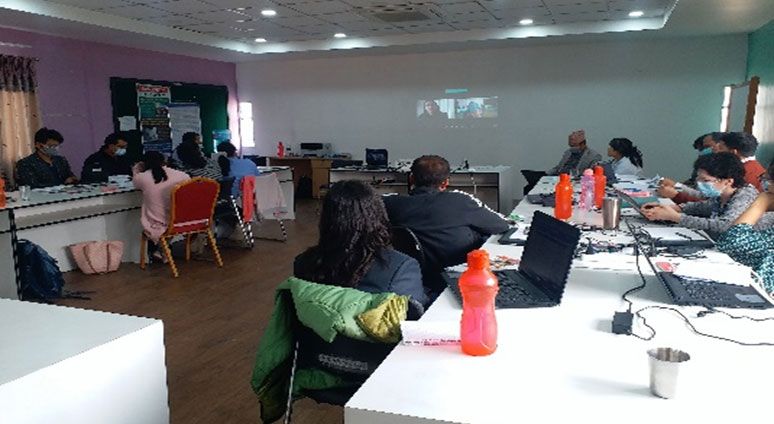
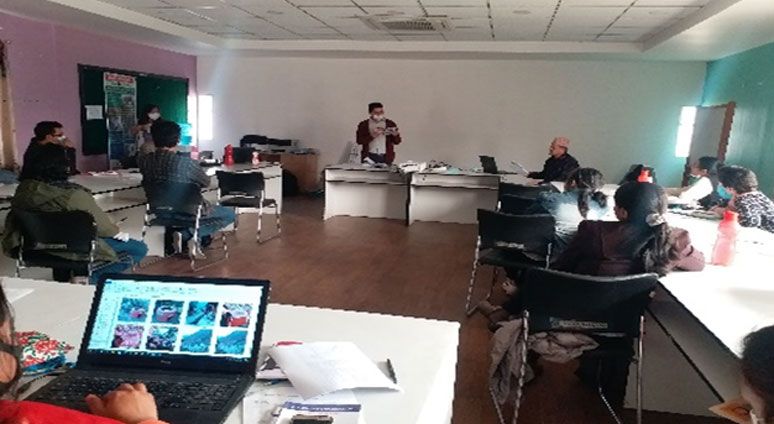
The recent revision in school curriculum to include MHM as a topic from grade 4 to 12 demands supplementary resource materials for children and teachers to make students learning on menstruation inside the classroom with ease. In this scenario GIZ, John Moore University and Global Action Nepal came with the idea of collating all materials and finding the materials gap, developing as per the new curriculum and piloting these existing and new products in different geographical region of the country It has been observed that a rich array of education materials prepared by different organizations, Government agencies Ministry of Education, Ministry of Health and Family planning.
Therefore, the need has been identified to compile and make an index of existing teaching and learning materials around the topic of menstruation in order to provide teachers and health educators a comprehensive choice according to different age group.
The education toolkit thus serves as a support for teachers and students to teach and learn about menstruation in and inter disciplinary way. It will include education materials developed by members of MHMPA during the past years.
Study of The Government curriculum and analyzing gaps
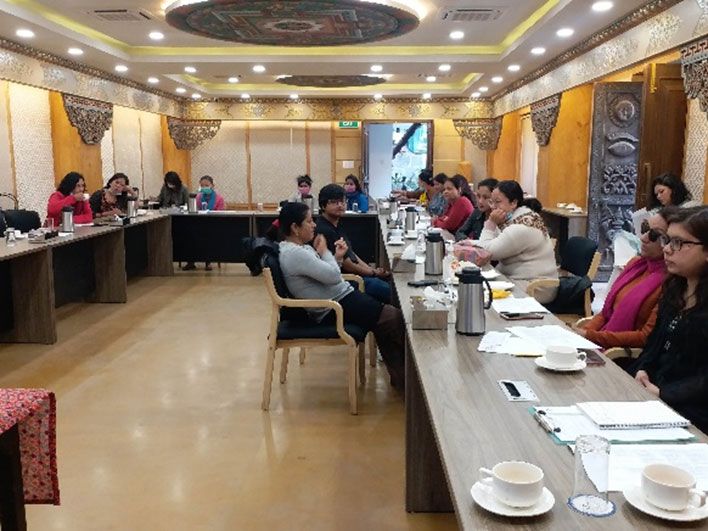
Workshop on assessment of disable friendly materials
-
Materials should consider gender friendly
-
Materials should focus on counseling and psychological support for people related with disability
-
Need to include that menstruation also happens to transgender male as well
-
The education kit should also consider third gender, transgender, types of disability in the content and examples and if possible with pictures
-
Need to advocate for universal designed toilet for uniformity and easy to use for people with disability.
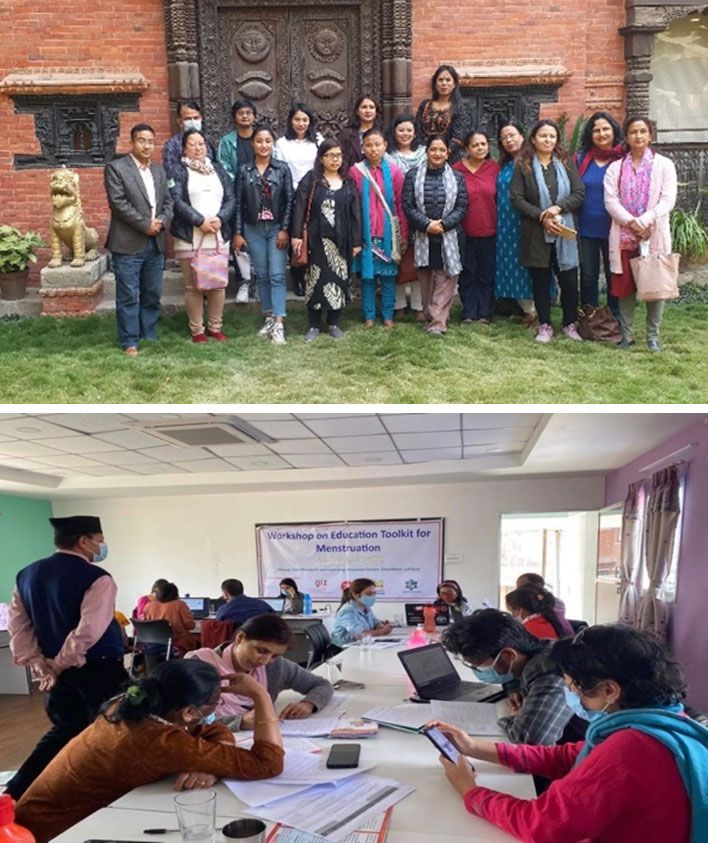
Materials Development
As per the outcome of materials gap identification, a 3 days long residential workshop was organized for the development of materials as required by the curriculum on 10-12 April 2021 at Gan Research and Learning Resource Center, Lalitpur. During the workshop participants were divided into 3 groups as group one was assigned for Grade 4,5, and 6, group 2 was assigned for Grade 7,8, and 9 and group 3 was assigned for Grade 10,11 and 12. All the groups rigorously worked on their assigned task and prepared materials for the tool kit . During the workshop, participants also revisited the outcomes of previous workshop and assessment of existing materials.
A total of 23 participants representing members of MHMPA and partners of DWD were present in the workshop. The materials were produced from 3 different groups.
Menstruation Education Resources
Menstruation is a cross sectorial issue, dominantly linked with education, human rights, reproductive health as well as water, sanitation and hygiene (WASH) and gender sectors in Nepal. In the absence of informed planning, policies and programs, women and girls might be deprived of not only human dignity during their menstruation, but also suffering from social stigma and taboos around menstruation on their health and education.
In Nepal, women and girls do not have the basic right to a dignified menstrual cycle. This means that they are subjected to inhumane and degrading treatment, including abuse and violence. The exclusionary practices, stigma and prohibitions surrounding menstruation, inherent in traditional beliefs and cultural heritage practices, have a negative impact on school attendance and employment, preventing women and girls from fully participating in economic and social life. This has become an emerging problem in Nepal. Due to the lack of informed plans, policies and programs, women and girls are not only deprived of human dignity during menstruation, but also social stigma and taboo on their health and education. Majority teachers are skipping reproductive health and Menstruation content so students have rare understanding of physiology human body and its system. Therefore, A Menstruation education toolkits were developed to ease and less challenging for teacher and students while learning sexual reproductive health.
Resource kits for menstruation Education (R4ME)
-
1. Developed Teachers directives and student learning materials as per the school curriculum (class 4-12) from a team of stakeholders/ actors who has been involving in the sector for long time.
-
2. Translated version of Ruby’s World (Teachers Directives from WASH United Germany), Compilation of Menstruation Education Resource person’s Radio dialogues
-
3. Reference materials produced by different organizations even if it is not directly linked to the curriculum. (comics, story books, case studies etc )
-
4. Pre -piloting The above curriculum based reference materials has been pre-piloted in schools in Lalitpur and Kathmandu after 3 days of teacher training using materials with interactive and joyful teaching learning. A reflection workshop was conducted with all teachers and some student’s representatives to collect feedback which is incorporated into the Resource kits.
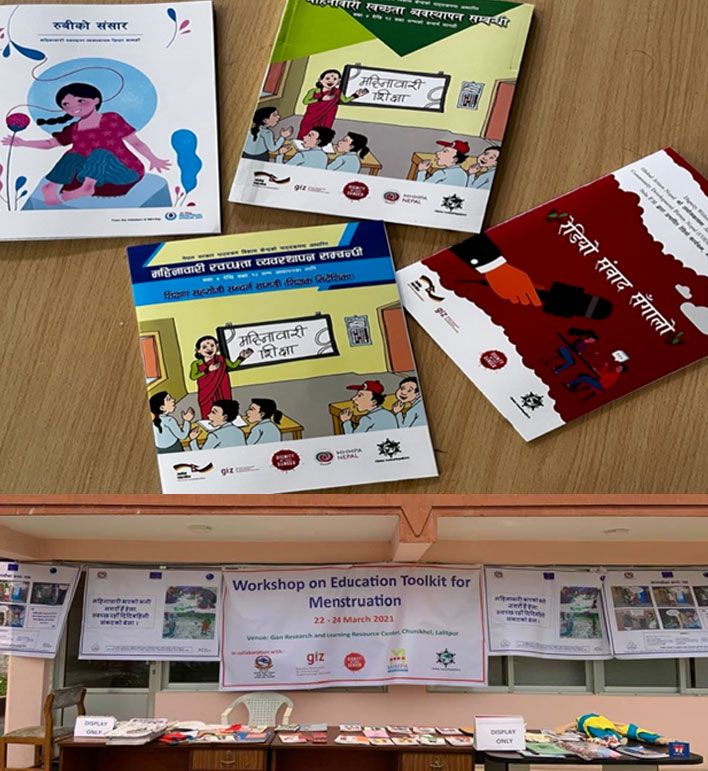
Piloting Mensturation Education Toolkits
In Nepal, women and girls do not have the basic right to a dignified menstrual cycle. This means that they are subjected to inhumane and degrading treatment, including abuse and violence. The exclusionary practices, stigma and prohibitions surrounding menstruation, inherent in traditional beliefs and cultural heritage practices, have a negative impact on school attendance and employment, preventing women and girls from fully participating in economic and social life. This has become an emerging problem in Nepal. Due to the lack of informed plans, policies and programs, women and girls are not only deprived of human dignity during menstruation, but also social stigma and taboo on their health and education.
Objectives- To look at the issue of menstruation from different perspectives (including health, sanitation, human rights, social aspects, etc.)
- Proposing a collaborative approach to "menstrual education" with many MHMPA artists
- Offering inclusive and interdisciplinary teaching and learning methods (including books, arts, stories, etc.) about menstruation, allowing to address the individual needs and preferences of teachers and students
- To strengthen MHMPA - as a well-known alliance of actors and knowledge centre on menstruation.
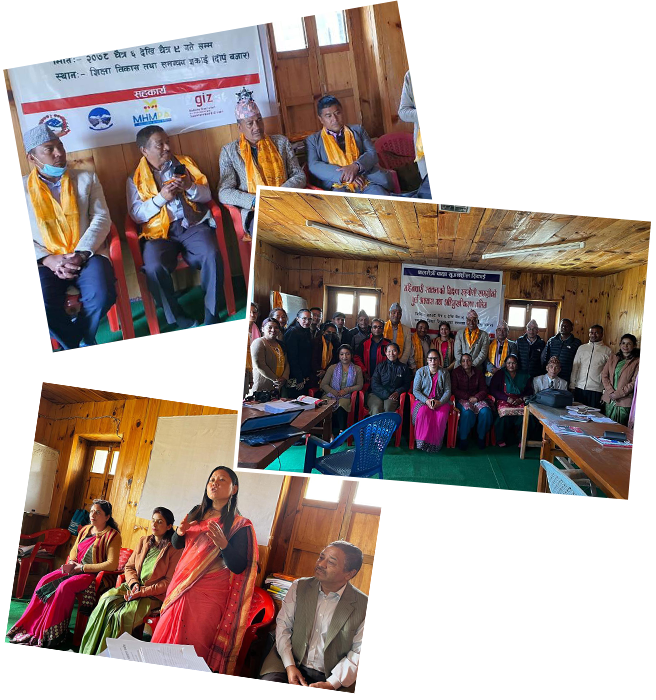
Solukhumbhu
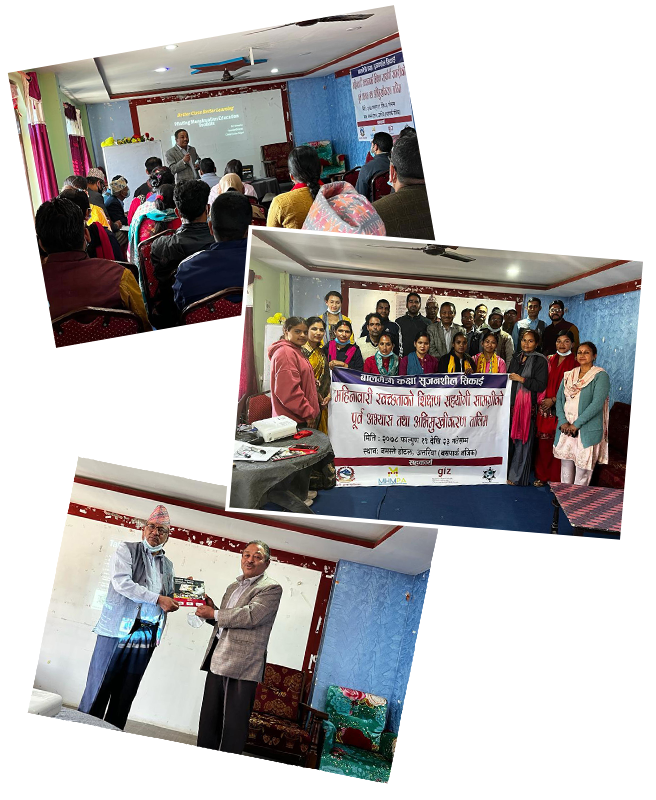
Kailali
Global Action Nepal in collaboration with Ministry of Health, GiZ, MHMPA (the Alliance of Menstrual Health and Hygiene Management Partners (MHMPA) was established in 2017 as a slow network to coordinate activities around dignified menstruation within Nepal. The Coalition has set one of the goals of becoming a knowledge centre at MHM within Nepal) and Dignity without Danger Research Project ( A joint venture of John Moore University UK , SOAS UK and Tribhuwan University) bring all stakeholders/actors together, explore their efforts and collect their materials, compiling information, activities related to dignified menstruation to make them accessible to all concerned stakeholders and the public to achieve the above objectives and address issues and advocate for a dignified menstrual cycle.
Global Action Nepal (ज्ञान) is a social organization working exclusively in access, equity, inclusive and quality education in Nepal, In order to create an equal and justifiable society for all . The organization has been working for more than two decades to increase the life time opportunities of the growing generation in Nepal by expanding its access and participation in empowerment, community sustainability, gender equality, school education and life skills development.ज्ञान tailor-makes its activity accessing and completing the cycle of school education.
Menstruation has been identified as an obstacle for discontinuing education for girls. In most Nepali schools, the subject of menstruation has become a subject of self-study, which prevents children from understanding their body and the natural process of menstruation. The inclusion of menstruation in the curriculum from class 4 is a very positive step. However, it does not mean that the teachers would implement the subject without hesitations or teach the subject of menstruation with ease and comfort in the class. Therefore, GAN came up with the idea of developing education toolkits for schools for teachers and students, which will help both teachers and students to talk and discuss about menstruation without any hesitation.
ज्ञान is an active member of MHMPA, and a collaborating lead partner of the “Dignity Without Danger” research project, ज्ञान explores that various organizations have developed and produced a wide range of resource materials related to menstruation that were being widely used and in communities and schools as well. But what have been noticed in the process of research and developing toolkits that most of these materials and documents mainly focused more on their respective project areas, limiting their extensive use in the projects of particular partners and benefiting a wider audience. The issue of menstruation has not been able to become a topic of public discussions in the Nepali society, and is rather considered as a private and shameful issue.
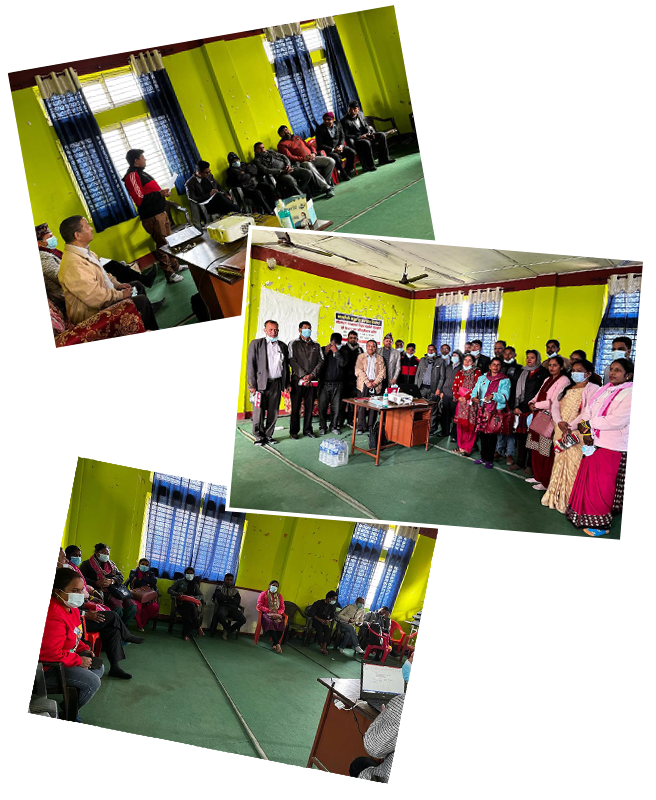
Kapilvastu
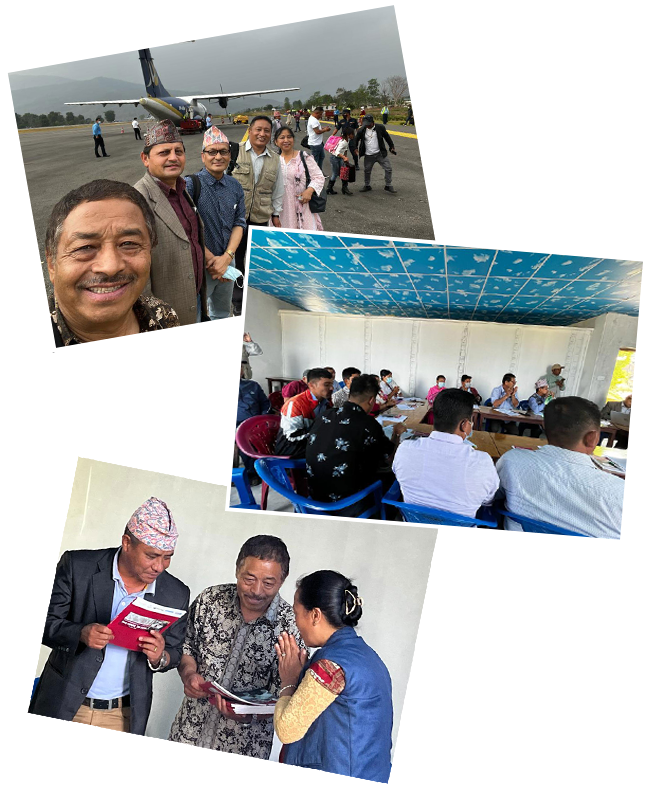
Khadbari
The toolkit is a package of supplementary resource materials for teachers and students; developed as per the school curriculum (class 4-12) from a team of stakeholders/ actors who has been involving in the sector for long time. It has also included reference materials produced by different organizations even if it is not directly linked to the curriculum.
The curriculum department believes that toolkits can be assets for students and teachers to better understand menstruation. The piloting phase was important for teachers to prepare excellent teaching materials related to menstruation and pedagogy for use in the classroom. As taboos, stigmas and beliefs are deeply rooted in Nepali society, this effort is not limited to schools only, but also with the teachers who work closely with people in the community, especially the parents. In the first phase, all the existing materials related to menstruation were brought together, the curriculum was analysed to find out the gaps between the available materials and the new materials required for the new curriculum were produced.
The toolkits will be tested in the field in different stages ; pre-piloting in schools in the valley and incorporate feedback before piloting in 30 schools in four districts in different geographical regions Solukhumbu (Himalaya region ), Khadbari ( Middle Hill ) and Kailali and Kapilvastu ( Terai Region)
The pre-piloting and Piloting phase will be focused on receiving teachers and students feedback over the materials and observing teachers delivery inside the classroom with using toolkits.
The piloting step will be very important to use these toolkits to make it more relevant and applicable in all schools of Nepal. The project envisages that with the pilot project will reach all 35,000 schools in Nepal through CHERD in coordination with local governments and isplayed in learning corner in schools and also will be uploaded on websites and made available online for wider audience.
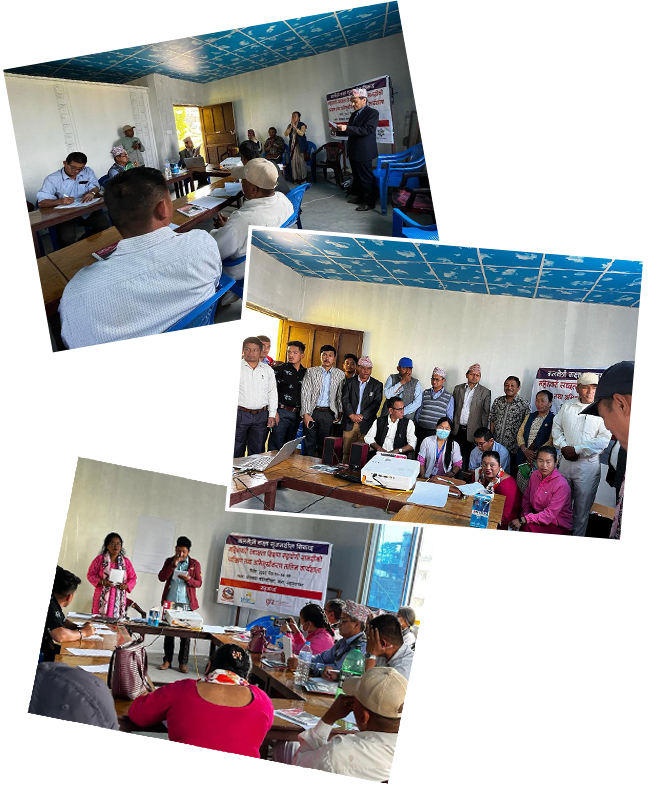
Khadbari
Mensturation Education Toolkits Launching program
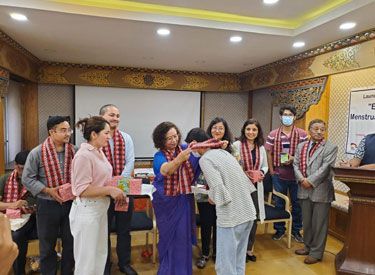
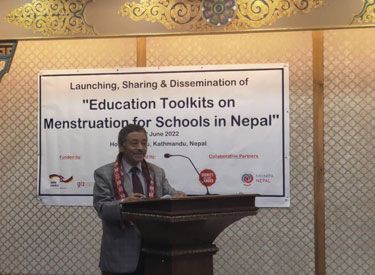
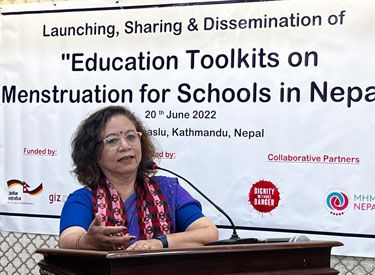
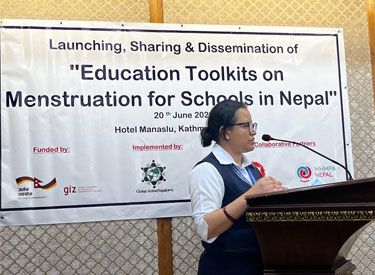
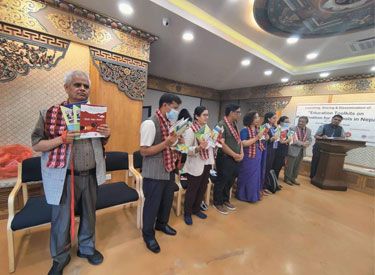
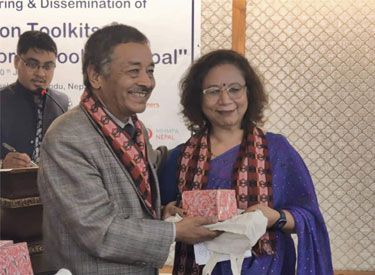
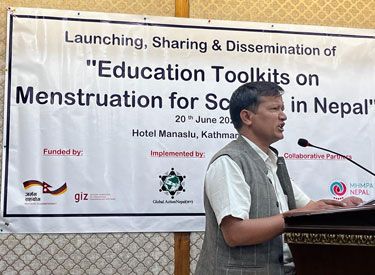
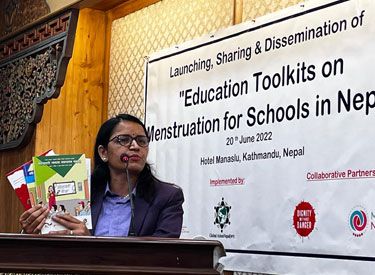
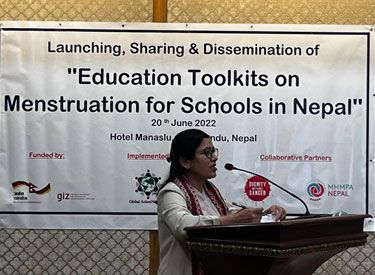
Piloted Districts
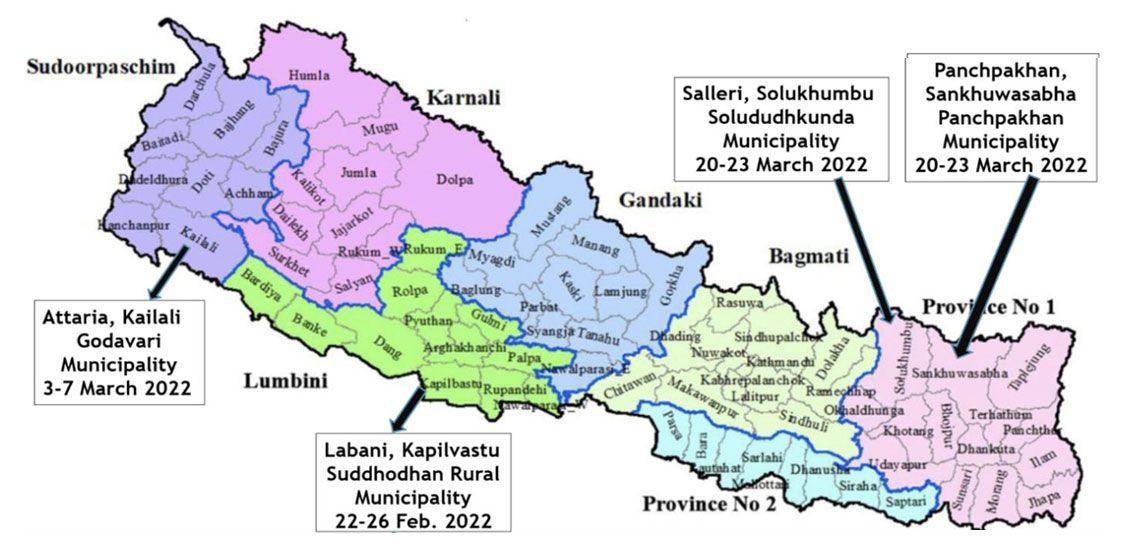


GAN NEPAL
977-1-4650420
This email address is being protected from spambots. You need JavaScript enabled to view it.
Post box 2717, Italitar
Budhanilkantha Municipality-6
Kathmandu, Nepal
GAN UK
This email address is being protected from spambots. You need JavaScript enabled to view it.
4 City View Bath, BA1 5JQ
Follow Us On:
GET UPDATED WITH GLOBAL ACTION NEPAL
SubscribePROJECTS
- Community Participation for Education and Child Protection Project (CPECP)
- Disaster Risk Reduction Programme (DRRP)
- Equal Opportunity For All
- Inclusive Education
- Livestock and Agriculture Income Generation Program
- Partnership for Equity and Access in Kapilvastu (PEAK)
- Play for Change (P4C)
- Sister for Sister (S4S)
